一年前の冬は、移住をした夏以降の体調不良から少しずつ良くなり、療養とリハビリを兼ねた山歩きに出掛けていました。そして、最近は、住んでいる街を散策するリハビリを少しずつ増やしていて、かねてから気になっていた、「赤穂玩具博物館」へ行ってきましたので紹介します。
Last winter, I was gradually getting better from the poor health I had been feeling since the summer I moved here, so I went hiking to recuperate and rehabilitate. Recently, I have been gradually increasing my rehabilitation by walking around the town where I live, and I went to the Ako Toy Museum, which I had been interested in for a long time, so I would like to introduce it to you.
『 正面外観 / Front View 』
赤穂市の中心にある赤穂城の北正面にある博物館は、築50年以上は経っている一軒家で、家屋より古い車や看板で外観は埋め尽くされており、雰囲気のある、一種異様な光景です。
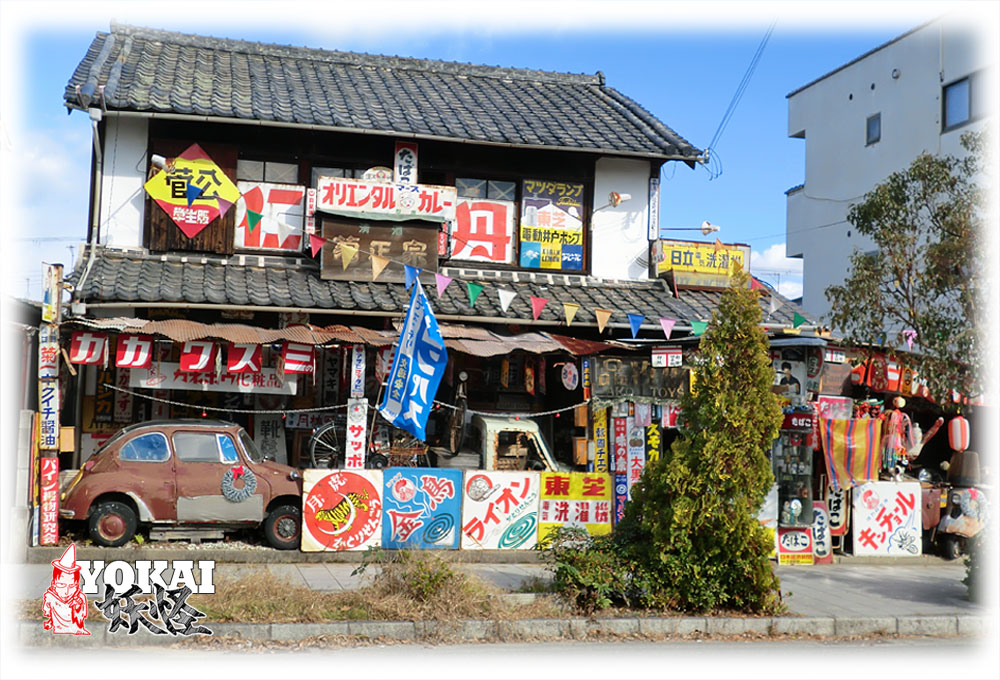
The museum, located in front of the north of Ako Castle in the center of Ako City, is a house that is over 50 years old, and the exterior is filled with cars and signs that are older than the house itself, creating an atmospheric and somewhat strange sight.
『 スバル360 / Subaru 360 』
この博物館の看板車は、何と言っても 1960年発売のスバル360 でしょう。2ストローク 2気筒 360㏄ のエンジンで、煙を吐きながら走る姿が思い出されます。展示車両は、テールランプの形状から、1967年頃の車両だと思われます。 そして、その前方の薄いウグイス色の車両は、1957年発売の三輪軽トラック、ダイハツ・ミゼットで、ハンドル形状が丸ハンドルですから、恐らく 1959年以降の年式だと思われます。
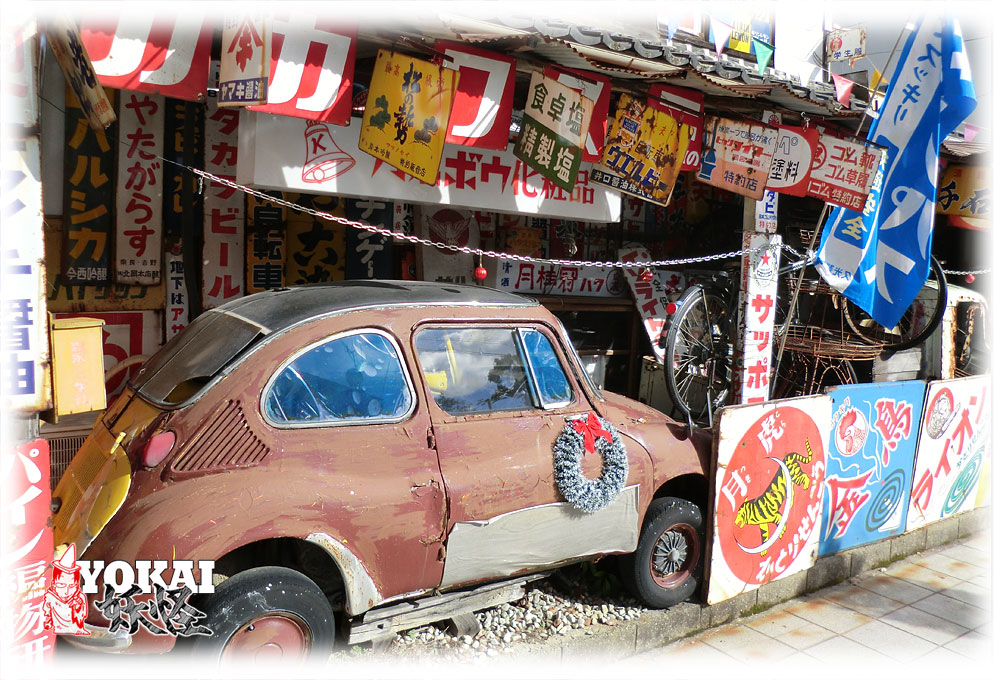
The museum's signature vehicle is undoubtedly the Subaru 360, released in 1960. Its two-stroke, two-cylinder, 360cc engine brings to mind the image of it spewing smoke as it drives. The vehicle on display is thought to be from around 1967, judging from the shape of the taillights. And the light green vehicle in front of it is a three-wheeled light truck, the Daihatsu Midget, released in 1957, and since it has a round steering wheel, it is probably from 1959 or later.
『 入口 / Entrance 』
この博物館の最初の難関は「入口」探しでした。看板や車、自転車だらけで、一般的な博物館の入り口をイメージすると入れません。黄色の「SSチェーン薬局」の看板のした、森永キャラメルの看板の左隣、由美かおりさんの笑顔に迎えられながら、狭い入口をくぐり抜けます。しかし、身長 145㏄ 以上の方は、頭部打撲事故に注意が必要です。
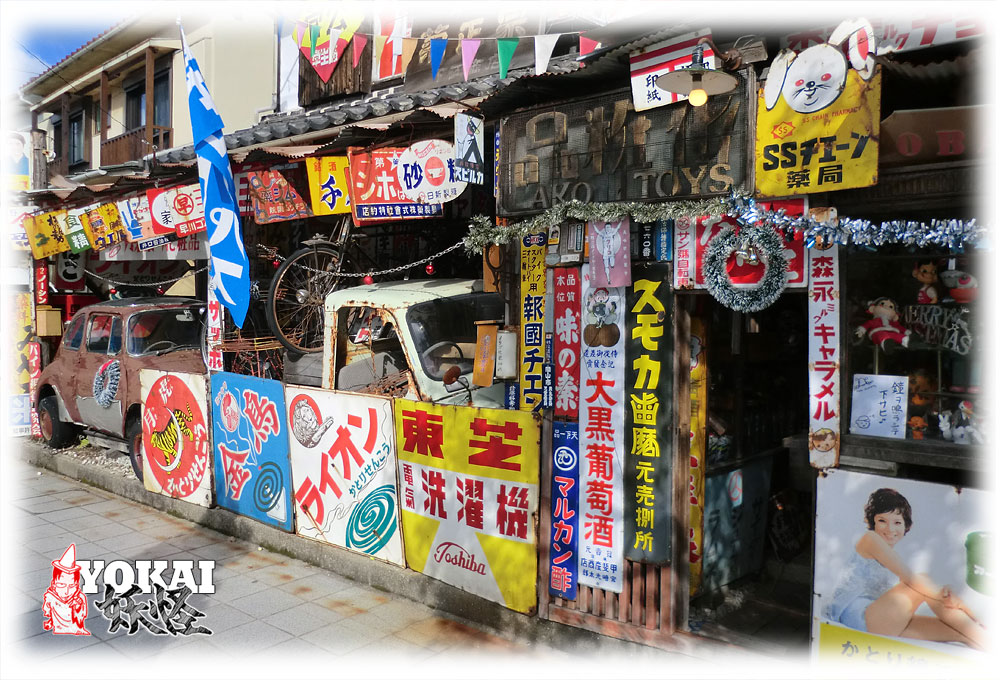
The first challenge in this museum was finding the entrance. There are signs, cars, and bicycles everywhere, and if you imagine a typical museum entrance, you won't be able to get in. We pass through the narrow entrance, greeted by the smiling face of Kaori Yumi, located to the left of the Morinaga Caramel sign, under the yellow "SS Chain Pharmacy" sign. However, if you are over 145cm tall, please be careful of head injuries.
『 入口の右隣には / Right next to the Entrance 』
入口の右隣を覗けば、「ウルトラセブン」が飛んでいます。そして、その「ウルトラセブン」を荷台に載せて運んでいるのが、1959年発売、マツダ(当時は東洋工業)の軽三輪トラック・K360 です。当時は、ダイハツ・ミゼットと同じ軽三輪トラック同士で人気を分けていましたが、僕は 5歳の頃に初めて運転した想い出のある K360 がお勧めです。このよく似た 2台の見分け方はドアを見れば簡単です。ミゼットのドアは 後ヒンジの前開きで、K360 は一般的な 前ヒンジの後開きです。さらに、K360 の後につけているのが、フロントカウルの形状から、恐らく、1960年頃のシルバー ビジョン だと思われますが自信ありません。そして、その 2台の背後からヘッドライトを出しているのは、1957年型の ダットサン 210 か、翌1958年型の ダットサン 211 だと思います。後のブルーバードの祖先ですね。
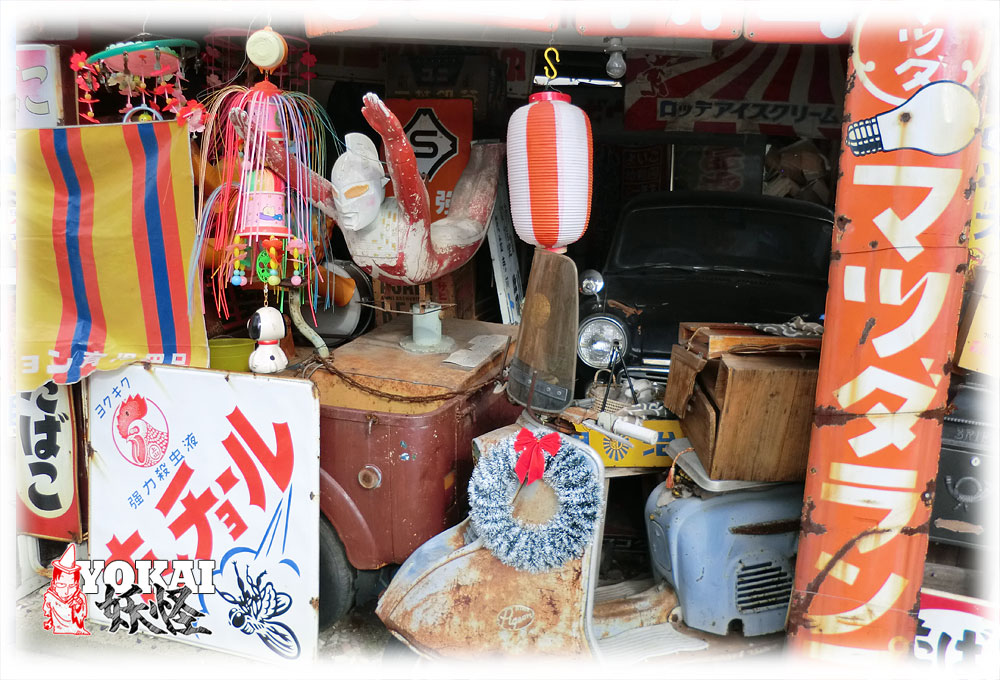
Looking to the right of the entrance, you can see "Ultra Seven" flying. And the vehicle carrying "Ultra Seven" on its loading platform is the Mazda (then Toyo Kogyo) K360, a light three-wheeled truck released in 1959. At the time, the Daihatsu Midget and the other light three-wheeled trucks were equally popular, but I recommend the K360, which I remember driving for the first time when I was 5 years old. It's easy to tell the difference between these two similar vehicles by looking at the doors. The Midget's doors are rear-hinged and open in the front, while the K360's are standard front-hinged and open at the back. Furthermore, judging from the shape of the front cowl, the vehicle attached to the back of the K360 is probably a Silver Vision from around 1960, but I'm not sure. And the car with the headlights coming out from behind those two is probably a 1957 model Datsun 210 or a 1958 model Datsun 211. It's the predecessor to the later Bluebird.
『 博物館内部には / Inside the Museum 』
2004年に開館した博物館の内部には、館長の鈴腹さんが長年に亘って収集を続けたおもちゃやミニチュアカー、家電品や様々な広告用展示物など、戦前を含めた昭和時代の品々で埋め尽くされていて、50歳台以上の方には見覚えのある品があるでしょう。また、昭和を知らない世代でも、江戸や明治、大正時代の品々の博物館とは違って、現代の文化やコマーシャリズムの源流を見る事ができるでしょう。(画像はありません、ごめんなさい)
しかし、身長 170㎝ 以上の方は、古い家屋と展示物のため、頭上に注意が必要です。実際、僕は博物館を出るまでに 3回頭をヒットしました。また、内部は展示物満載ですから、少人数で入館される事をお勧めします。
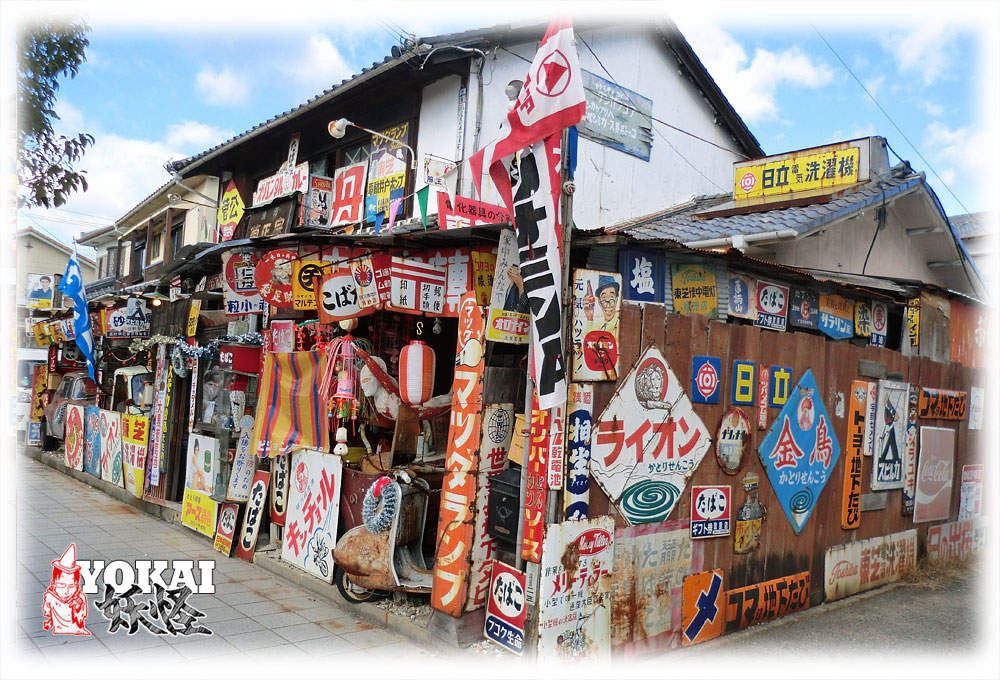
The museum, which opened in 2004, is filled with items from the Showa era, including prewar items, such as toys, miniature cars, home appliances, and various advertising exhibits that the director, Mr. Suzuhara, has been collecting for many years, and there will be some familiar items for those over 50 years old. Also, even those who do not know the Showa era will be able to see the origins of modern culture and commercialism, unlike museums with items from the Edo, Meiji, and Taisho eras. (No images, sorry)
However, those who are over 170 cm tall should be careful of the overhead due to the old house and exhibits. In fact, I hit my head three times before leaving the museum. Also, since the inside is packed with exhibits, I recommend entering with a small group.










